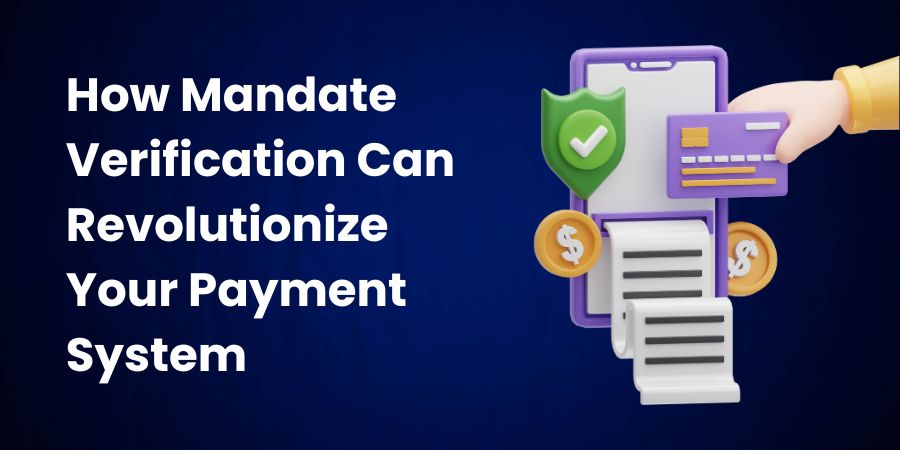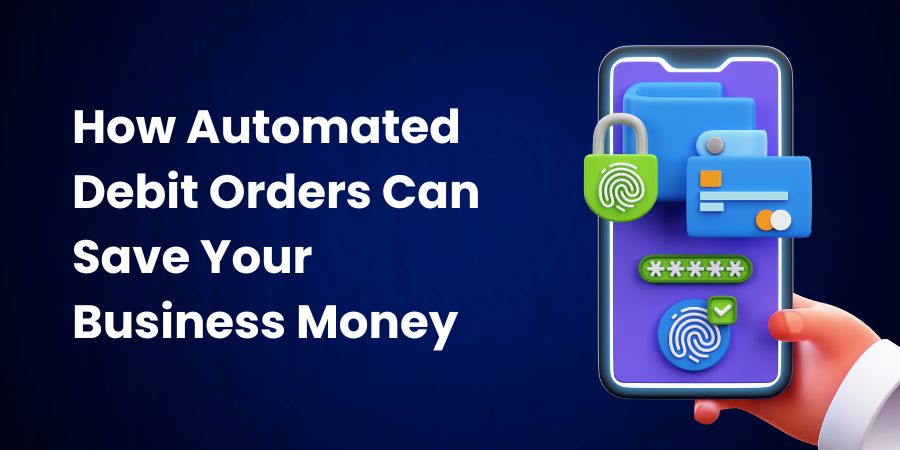
Understanding DebiCheck: How Mandate Verification Can Revolutionize Your Payment System
Are you tired of dealing with failed debit orders and unauthorized transactions? Say hello to DebiCheck, the revolutionary payment system that can transform the way you handle your payments. With DebiCheck, you can enjoy increased security and peace of mind, knowing that each payment you process is verified and approved by the account holders themselves.
The problem with traditional payment systems
Traditional payment systems often lack the necessary security measures to prevent unauthorized transactions. This can result in significant financial losses for businesses and a lack of trust from customers. Additionally, the manual verification process can be time-consuming and prone to errors, leading to payment disputes and chargebacks.
How DebiCheck works
DebiCheck works by requiring customers to authenticate their mandates before any payments are processed. This can be done through various methods, such as a one-time PIN sent to the customer’s registered mobile number or email address. Once the mandate is authenticated, businesses can proceed with processing the payment, knowing that it has been authorized by the account holder.
The authentication process adds an extra layer of security to the payment system, ensuring that only authorized transactions are processed. This not only protects businesses from fraud but also instills trust and confidence in customers, knowing that their payments are secure.
Benefits of using DebiCheck for businesses
Implementing DebiCheck in your payment system can bring a multitude of benefits to your business.
- Firstly, it reduces the risk of unauthorized transactions and payment disputes, saving your business time and money. By verifying each payment, you can prevent fraudulent activities and ensure that only legitimate transactions are processed.
- DebiCheck also improves customer satisfaction and loyalty. The enhanced security measures provided by DebiCheck give customers peace of mind, knowing that their payments are being verified and authorized by themselves. This can lead to increased trust in your business and a stronger relationship with your customers.
Implementing DebiCheck in your payment system
Integrating DebiCheck into your payment system is a straightforward process. You will need to work with your bank and payment service provider to set up the necessary infrastructure for DebiCheck. This may involve updating your payment gateway or implementing additional security measures. With our Direct Debits offering, the integration process is truly seamless and hassle-free.
Once the infrastructure is in place, you can start offering DebiCheck as a payment option to your customers. Educate your customers about the benefits of DebiCheck and how it enhances the security of their transactions. This will help encourage them to opt for DebiCheck when making payments, further reducing the risk of unauthorized transactions.
Common misconceptions about DebiCheck
There are some common misconceptions surrounding DebiCheck that need to be addressed. One misconception is that DebiCheck is complicated and time-consuming for customers. However, with advancements in technology, the authentication process has become streamlined and user-friendly, making it easy for customers to verify their mandates.
Another misconception is that DebiCheck is only suitable for large businesses. In reality, DebiCheck can benefit businesses of all sizes, as fraudulent transactions and payment disputes can impact any organization. Whether you’re a small startup or a multinational corporation, implementing DebiCheck can provide significant security and efficiency improvements.
Case studies: Successful implementation of DebiCheck
Several businesses have already implemented DebiCheck and have seen positive results. For example, a leading e-commerce retailer experienced a 40% decrease in payment disputes and chargebacks after implementing DebiCheck. This not only saved them time and money but also improved customer satisfaction.
Another case study involves a subscription-based service provider. By implementing DebiCheck, they were able to significantly reduce unauthorized transactions, resulting in a 30% increase in revenue. The added security measures provided by DebiCheck also attracted new customers, who valued the enhanced protection of their payments.
DebiCheck vs. other payment verification methods
While there are other payment verification methods available, DebiCheck stands out for its robust authentication process and its ability to prevent unauthorized transactions effectively. Other methods, such as two-factor authentication or SMS notifications, may provide some level of security, but they are not as foolproof as DebiCheck.
DebiCheck also offers the advantage of being a standardized payment system in South Africa. This means that businesses and customers can trust that the authentication process follows strict regulations and compliance requirements. This adds an extra layer of trust and credibility to DebiCheck compared to other payment verification methods.
DebiCheck regulations and compliance
DebiCheck is regulated by the South African Reserve Bank and is compliant with the requirements set by the Payments Association of South Africa (PASA). This ensures that the authentication process and the overall payment system meet the highest standards of security and reliability.
As a business implementing DebiCheck, it is essential to stay up-to-date with any changes or updates to the regulations. This will help you ensure that your payment system remains compliant and continues to provide a secure and efficient experience for both your business and your customers.
Embracing the future of payment systems with DebiCheck
Don’t let payment fraud and disputes hinder your business. Embrace DebiCheck and revolutionize your payment system today. Say goodbye to unauthorized transactions and hello to enhanced security and efficiency. With DebiCheck, you can protect your business from fraud, reduce payment disputes, and improve customer satisfaction. By implementing DebiCheck, you are taking a proactive step towards building trust and credibility with your customers, ultimately enhancing your business’s reputation and success.
So, why wait? Fill out our contact form and inquire about integrating DebiCheck into your payment system. The time to embrace automated subscription billing service is now!
Enquire about DebiCheck Automated Debit Order System
Frequently Asked Questions
Q: What is DebiCheck?
DebiCheck is a type of electronic mandate verification system used by banks to ensure that debit order details are confirmed by the account holder before they are processed. It’s designed to combat unauthorized debit orders by allowing customers to verify and approve specific details of their debit orders, such as the amount and the date of deduction.
Q: How does DebiCheck work?
When a DebiCheck is initiated, the customer receives a request, typically through their bank’s app, online banking platform, or via SMS, asking them to confirm the details of the debit order. Once the customer verifies and approves these details, the debit order is registered on the system, and future transactions that match the approved details are automatically processed.
Q: What are the benefits of using DebiCheck for businesses?
For businesses, DebiCheck offers improved security and reduced fraud related to debit orders, ensuring that payments are authorized by their customers. It also reduces the number of disputed debit orders and chargebacks, saving costs and administrative headaches. Additionally, it builds trust with customers, who appreciate having control and oversight over their payments.
Q: What are the benefits for customers?
Customers gain greater control over their debit orders, with the ability to approve, dispute, or decline debit orders before they are processed. This reduces the risk of unauthorized debits and helps manage cash flow more effectively by ensuring that only expected debits are made from their accounts.
Q: Are there any limitations or challenges with DebiCheck?
Implementation can be complex and requires integration with banking systems, which might be a challenge for smaller businesses. Customers also need to be proactive in approving debit orders, which could lead to delays if not managed promptly. Additionally, there might be learning and adaptation required for both businesses and customers to get accustomed to the new process.
Q: How can a business implement DebiCheck?
Businesses interested in implementing DebiCheck should start by contacting their bank or payment processor to discuss the requirements and integration process. It may involve technical setup to connect with the banking system and ensure compatibility with the DebiCheck mandate verification process.
Q: Does DebiCheck replace existing debit order systems?
No, DebiCheck does not replace existing debit order systems but adds an additional layer of security and control. It’s particularly useful for new or variable debit orders where the amount or date might change, requiring explicit customer approval.
Q: How is DebiCheck different from traditional mandate verification?
Traditional mandate verification often relies on paper-based authorization or less secure electronic methods, which can be prone to fraud. DebiCheck enhances security by requiring real-time, electronic verification and approval of each debit order directly by the account holder, making it more secure and reliable.
Q: Is DebiCheck mandatory for all businesses and customers?
While not mandatory for all transactions, DebiCheck is increasingly being adopted by businesses and banks to enhance the security and integrity of debit order systems. Customers are encouraged to use it for their protection, but it depends on the services provided by their bank and agreements with businesses.
Q: Can customers manage their DebiCheck approvals?
Yes, customers can manage their DebiCheck approvals through their bank’s online banking platform, mobile app, or other digital channels provided by their bank. This includes viewing pending approvals, confirming or rejecting debit orders, and reviewing past transactions.

